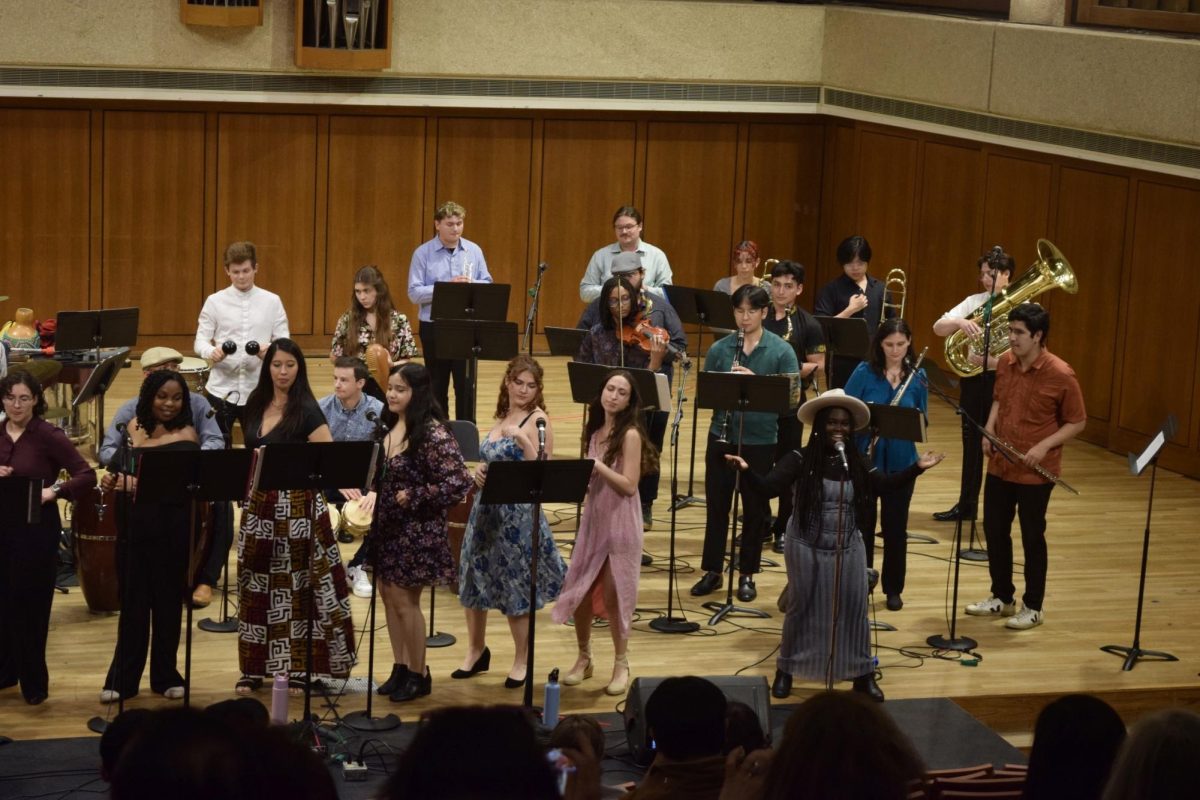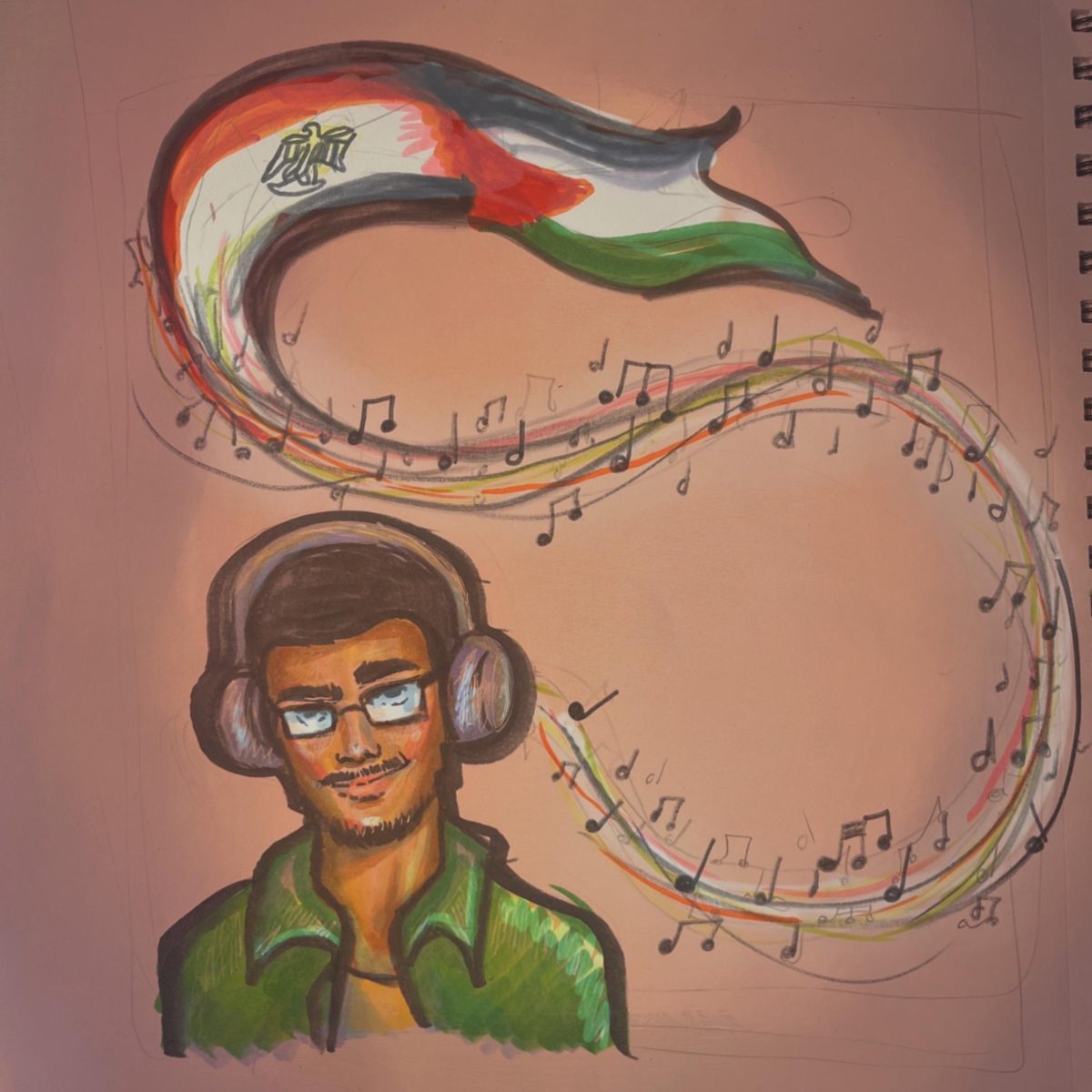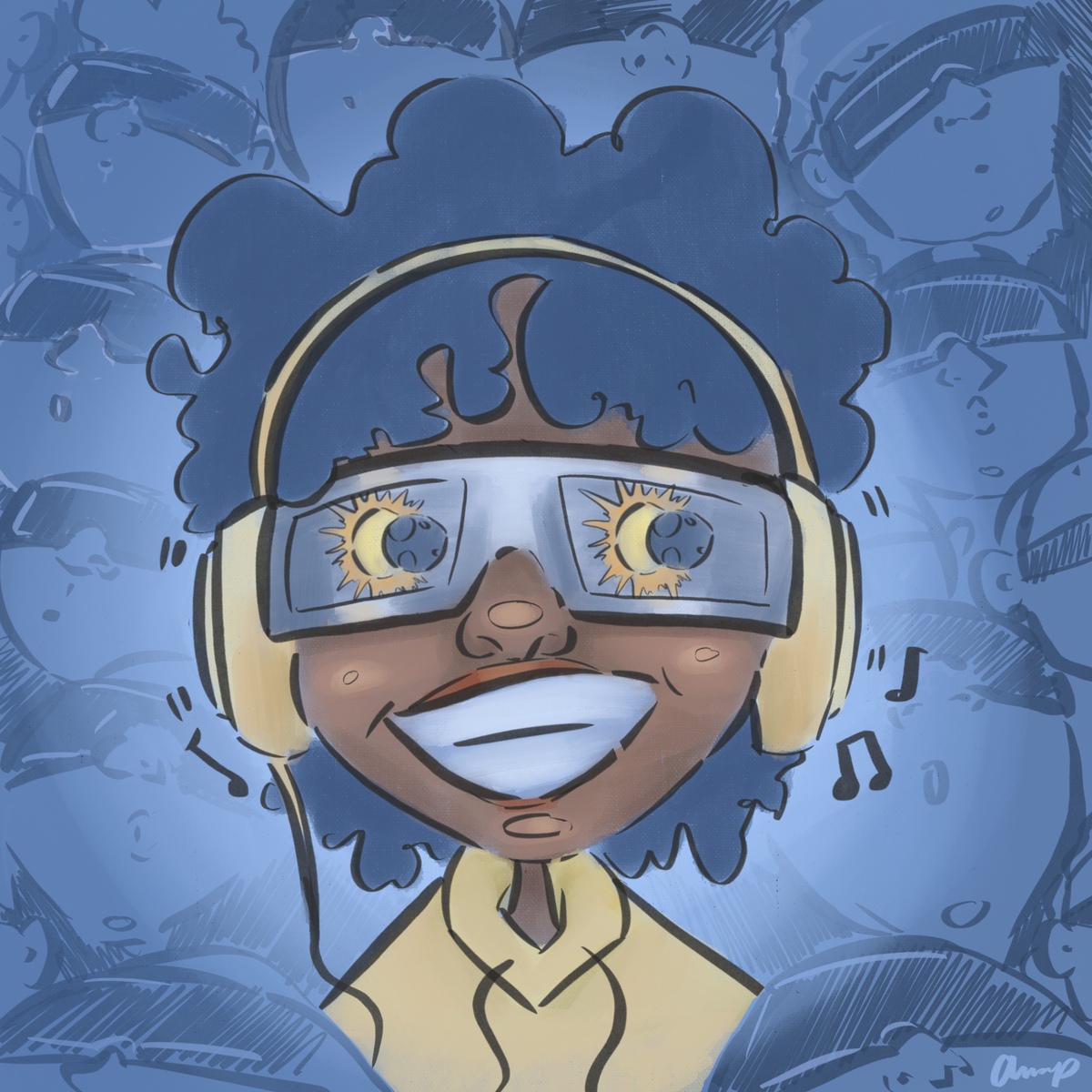“I mean, yeah, we can put a count on [the beat], but it makes it boring; you become a machine,” Ibrahim Aminou said, as he tapped out an uninspired beat on his talking drum in the beer garden behind The Sahara Lounge, a club he co-owns with his wife and stepson. “To make a beat human, you have to put the soul inside,” Aminou said, pounding out a contagious rhythm so passionately that his glasses fall from his face to the ground.
An immigrant from Niger, Aminou teaches African drumming classes at the George Washington Carver Museum and Cultural Center. Aminou said he has had a relationship with rhythm and music since infancy. His first rhythmical experiences came from his mother rocking him to sleep on her back as she pounded yam in the village of Dineye.
“For African people in the village, everything is about rhythm. When the rooster crows in the morning, the rhythm starts,” Aminou said. “Rhythm is life.”
In the village of Dineye, rhythm served as a method of communication facilitated by griots, or messengers, on talking drums. Talking drums are hourglass shaped drums that can be manipulated to mimic the tone of the human voice.
“African music is a country music. African music is a rock music, African music is a funk, jazz, rumba music, it’s a cha-cha-cha. From ethnicity to ethnicity, people speak different languages and their instruments have a different tune. But it doesn’t matter what kind of music it is because all music has a beat going on,” Aminou said.
In his classes, Aminou teaches students how to harness the comforting consistency of rhythm to become creatively minded musicians. For students new to drumming, he first teaches proper drumming technique and a few basic beats.
“When a student says they don’t have rhythm, I say, no, everybody has rhythm. You can lose it, but you have to find it. You have to bring it from inside out,” Aminou said.
In his lessons, he encourages students to improvise. Once students get the hang of the rhythm, Aminou then becomes the student.
“I learn every day from my students. As human beings, music comes in a different way from different people. No one thinks, lives, learns or processes things the same way,” he said.
After taking some of his classes, his wife, Eileen Bristol, noticed improvements in her bass guitar playing technique and rhythmic precision.
She is a member of Aminou’s band, Zoumountchi, which plays modern, West African-style music.
“When I started playing bass as a grown up, I started having all these feelings. It was just like it woke up something inside of me,” Bristol said.
Bristol believes in reincarnation, so from a religious perspective, the rhythm of life provides her comfort.
“[Growth and decay] is just the natural rhythm in the world, period. Knowing there’s a rhythm helps you be more patient. When things aren’t going well or you have failures or setbacks, you realize that if you keep trying, the energy will open up again and things will go smoothly again,” she said.
After witnessing an accident that claimed the life of a friend, Aminou attributes his ability to regain balance in his life to rhythm and his roots with friends and family.
“I’ll play sometimes for fourteen hours,” Aminou said. “The rhythms made me come back to normal, to get back my abilities and to also understand that I will die, too, that anyone can die. We’re just part of the nature, it’s part of the discipline that we go through.”
As the product of a tightly knit, family-oriented community, Aminou believes music education helps children stay in touch with their roots. His teaching program proposal, Bright Future, is designed to educate students about African culture and drumming to provide a sense of groundedness and well-being.
“Learning how to play the drum helps you know patterns and focus. It will help you to be organized inside yourself, have motivation and creativity,” he said.
Aminou is in the process of setting up the program at the Hope Lutheran Church and hopes to extend his program to other educational settings in Austin.
“My mission is to promote joy and to make people think beautifully inside themselves. I want to be able to teach in the schools, so I can teach kids how to play music that promotes joy, creativity and hope,” Aminou said.
Printed on Wednesday, October 11, 2011 as: 'Rhythm is life' for African drum teacher




















